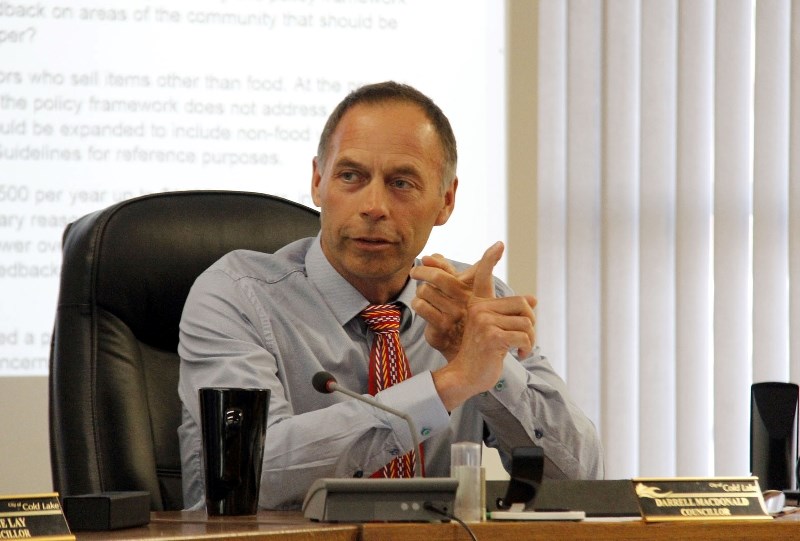In a vote four to two, Cold Lake city council agreed to put the gears in motion to start the process of adding a new procedure to their meetings. Coun.
In a vote four to two, Cold Lake city council agreed to put the gears in motion to start the process of adding a new procedure to their meetings.
Coun. Darrell MacDonald made a notice of motion during their June 27 meeting to amend the procedural bylaw in order to add the recognition that the City of Cold Lake is on Treaty Six Territory and traditional Métis lands.
The motion is near and dear to his heart. As a Métis himself, he reflected on his Cree grandparents, and how they would share their stories, songs, and traditions.
"More and more meetings I am attending, everywhere I go, I am hearing that (recognition) all of the time. I think this is a respect thing. I like the idea of being able to say it at the beginning of meetings," said MacDonald. "We have a growing Indigenous population. They're not living on reserves or on settlements; they're taxpaying residents living in Cold Lake."
One councillor who made it clear he was onboard with the motion was Chris Vining.
"I think it's a great sign of respect that we recognize that we are on Treaty Six Territory," Vining expressed. "I do believe in it. I think our First Nations, Métis, and all our Indigenous partners are already becoming partners within our community."
He added, "The time has come to show respect for where we are and what the history of this area is."
Coun. Bob Buckle, who voted against the motion, believes it isn't council's place.
Prior to the council meeting, Buckle did some digging to learn more about what this sentiment means to not only city council, but also the Indigenous community.
"We're doing something, and I'm not sure if it's in the municipal world for us to be doing. We're about sewers, streets, and streetlights. That's our thing. I hear that (recognition) is about the healing process and all of that, but I'm not sure if that's something we're supposed to be doing," he exclaimed.
Buckle's objection stemmed from the concern of what the sentiment means to both sides, and how it could be translated differently by various members of the community.
"I fail to see how the acknowledgement will add to the community when we're perhaps putting residency at a different level. If you're historic and ancestral, does it put one above the other on a perception scale within our community?" Buckle asked.
Explaining that the process of implementing this recognition has been passed down to municipalities by the federal government, Buckle believes it doesn't fall under the mandate of a municipal council.
"I think reconciliation needs to be much more than just flowery words said around a council chamber. I don't see that as being anything but using municipalities to perhaps soften the ground of a local level without actually dealing with the issues on a federal level."
Vining, on the other hand, stood firm in his support of the motion.
"It's a path to reconciliation... I think to recognize the traditional land is certainly not a problem I would have, and I would welcome it."
Council voted six to one, and will be starting the process of adding the recognition to their meetings.
